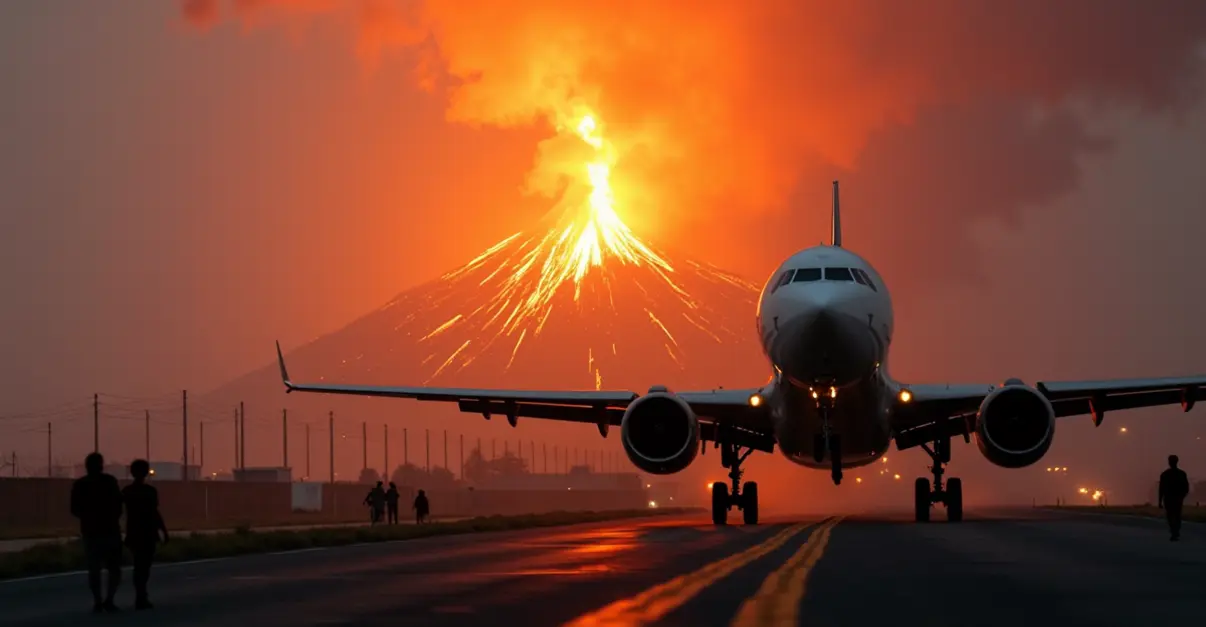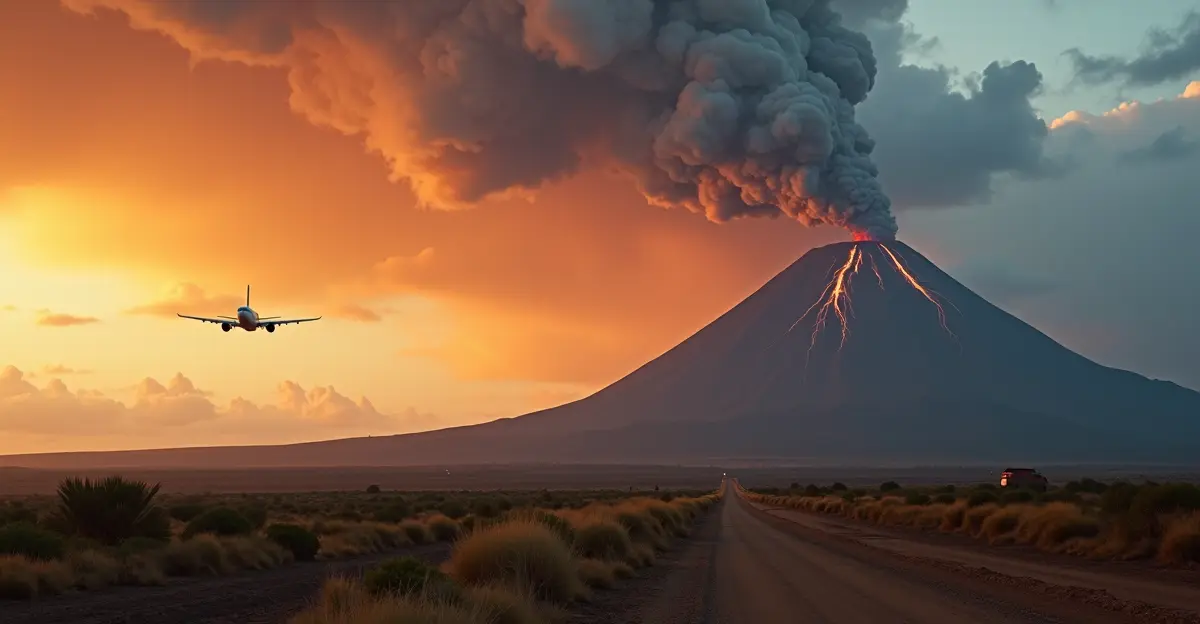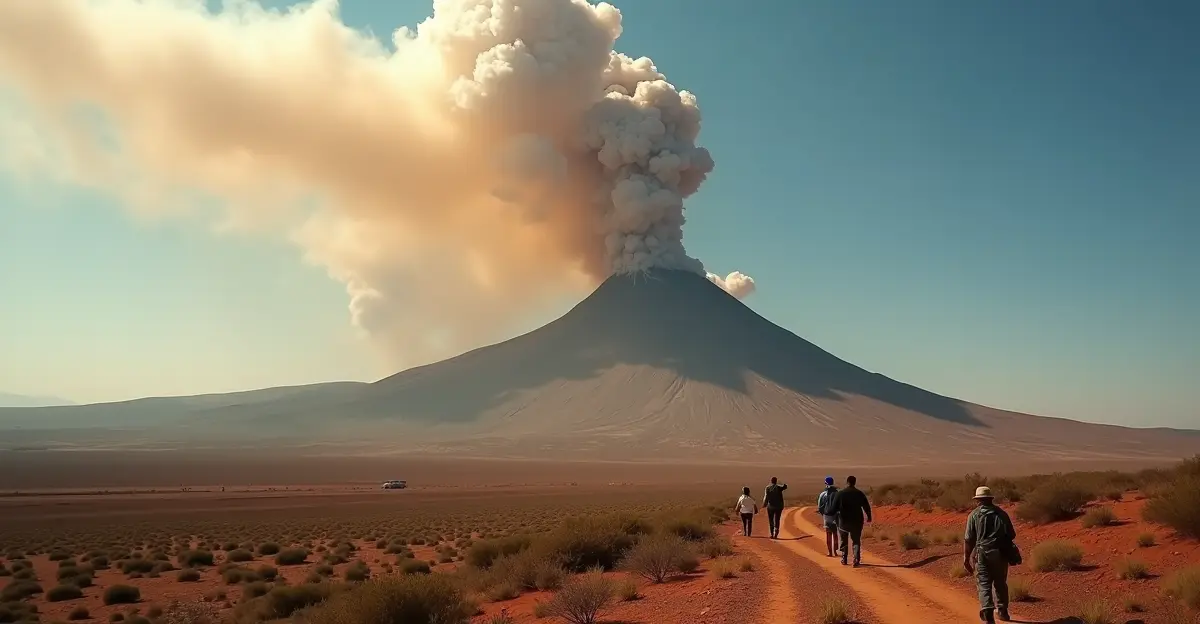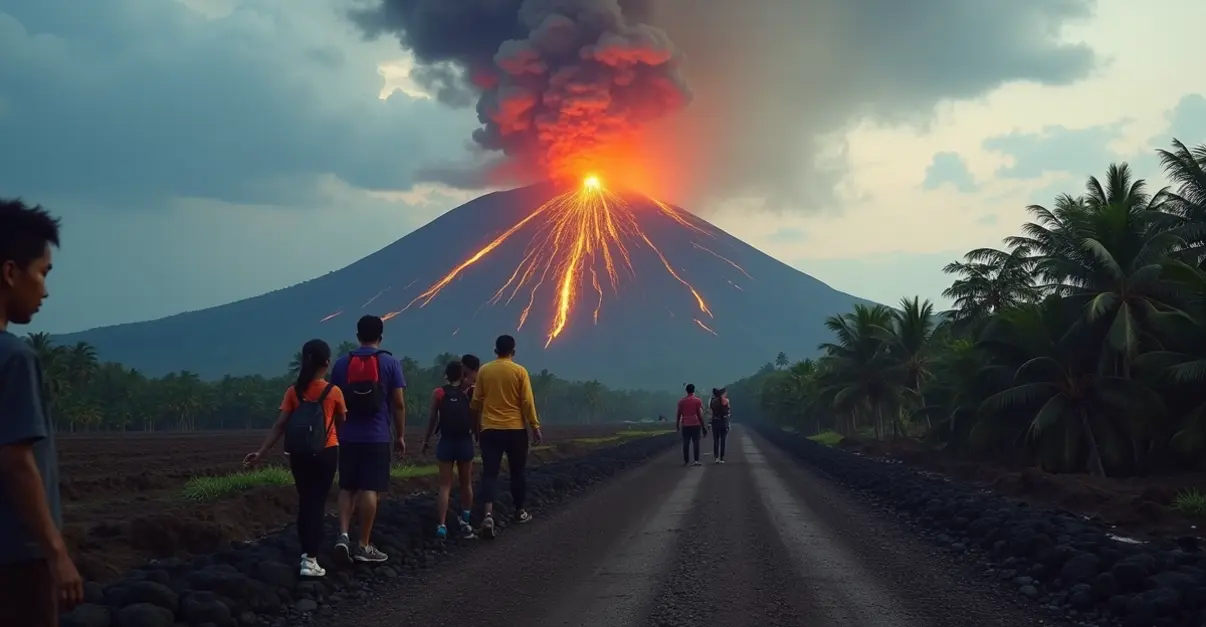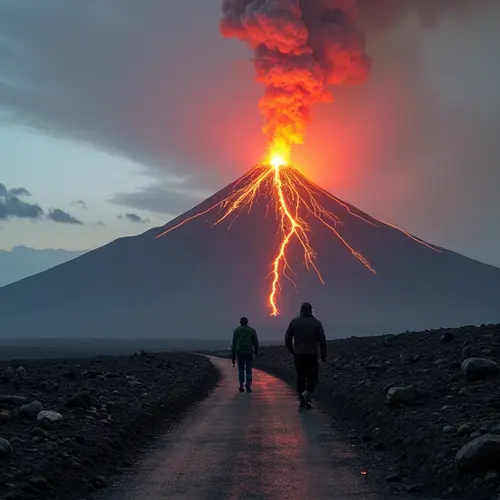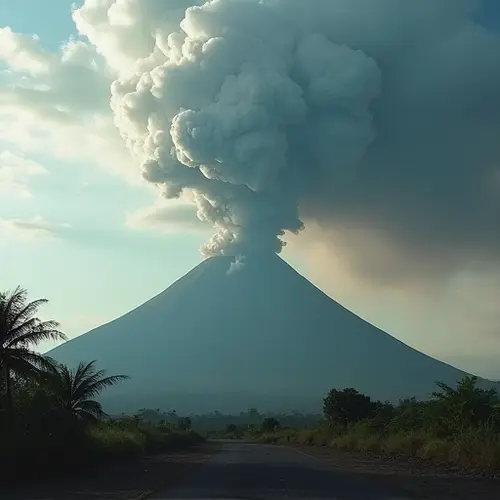Volcanic Ash Cloud Travels 4,000 Kilometers, Grounding Flights
The eruption of Ethiopia's Hayli Gubbi volcano, which occurred for the first time in at least 12,000 years, has sent an ash cloud soaring 14 kilometers into the atmosphere, causing significant disruptions to air traffic in India, over 4,000 kilometers away. Airlines including Air India have canceled multiple international and domestic flights, citing safety concerns as volcanic ash can damage aircraft engines and pose severe risks to aviation.
Historical Context and Immediate Impact
This rare event marks the first recorded eruption of Hayli Gubbi in human history, with experts noting its dormancy for millennia. The ash cloud drifted northeastward, affecting regions from the Middle East to India. 'Flying through volcanic ash is extremely hazardous; it can lead to engine failure and reduced visibility,' said Dr. Anika Sharma, a volcanologist at the U.S. Geological Survey. Air India officials confirmed cancellations to destinations like New York and Dubai, with additional inspections required for planes that encountered the ash, leading to further delays.
Comparison to Past Events
The situation echoes the 2010 Eyjafjallajökull eruption in Iceland, which caused weeks of air travel chaos across the North Atlantic. 'Lessons from Eyjafjallajökull have improved our response, but global air networks remain vulnerable to such natural events,' remarked aviation analyst Mark Jensen in a International Civil Aviation Organization report. Currently, the ash cloud is moving toward China, with authorities monitoring its path closely.
Local Safety and Future Outlook
Fortunately, the volcano has calmed, and no casualties or damage have been reported in the sparsely populated area near the eruption site, home to about 9,000 people. Ethiopian geologists are conducting further assessments to understand the eruption's causes and potential for future activity. 'We're relieved there are no injuries, but this event underscores the need for better monitoring of dormant volcanoes worldwide,' added Dr. Sharma. Travelers are advised to check with airlines for updates as the situation evolves.

 Nederlands
Nederlands
 English
English
 Deutsch
Deutsch
 Français
Français
 Español
Español
 Português
Português
